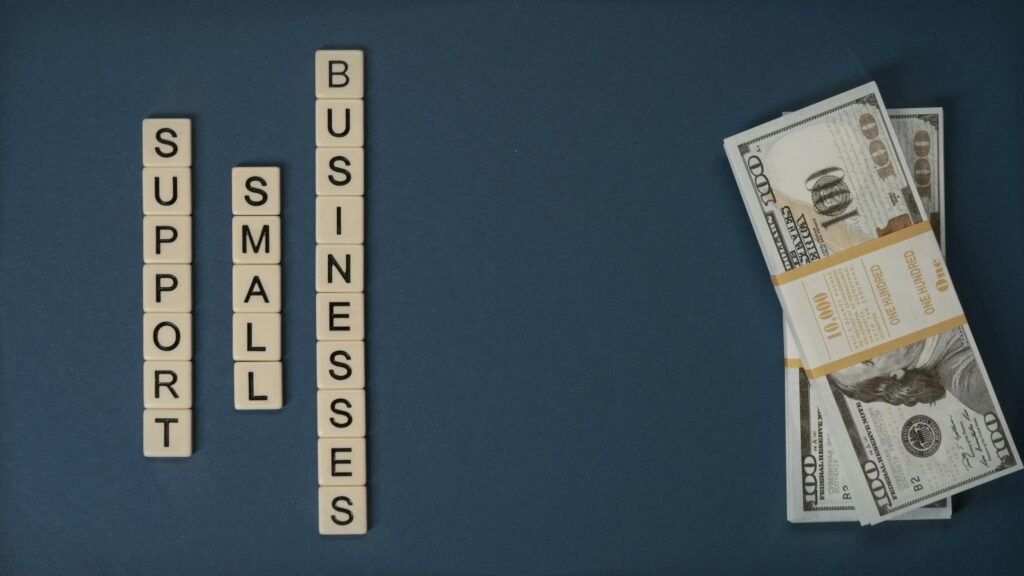Introduction
Over the years, Kickstarter has cemented its position as a household name in crowdfunding, changing the way creative projects receive funding. If you’re a hopeful filmmaker or an inventor with the next great idea. Kickstarter has probably popped up on your radar. But it still has competition in the game. If you are a project creator or backer deciding where to spend your time & money, understanding Who Are Kickstarters Competitors can help!

So with Kickstarter now a house hold name, let us dip into the world of crowdfunding to see who is challenging their throne.
Crowdfunding Platforms: What Do You Need to Know
What is crowdfunding?
Crowdfunding modern funding model which, in its simplest form, is a collection from your crowd of people pooling money together to support projects. Businesses or other needs that they believe in. Rather than have one investor, creators can get small donations from many.
Crowdfunding became a trend and began to revolutionize the innovation process
Crowdfunding has exploded in the past decade, and there are now platforms through which radical ideas can be born with little more than an account and a dream—eliminating traditional gatekeepers such as venture capitalists and banks. It opened the door to a whole host of innovations, thanks in part to platforms that received their propulsive and leverage from the luck of early years like Kickstarter, but also other players too jumped on board driving for niche after niche market or needs.
Who Are Kickstarter’s Competitors
Indiegogo
Indiegogo is arguably the biggest rival to Kickstarter. It started in 2008, a year before the birth of Kickstarter and provides flexible funding. Kickstarter implements an all-or-nothing model, while creators on Indiegogo can retain the funds they raise regardless of their goals being met. It allows more control to the creator who is definitely an appealing factor.
Strengths:
- Open to a wider range of projects, including personal causes.
- Offers an InDemand option, allowing campaigns to continue raising funds after their initial goal is reached.
Niche:
Technology, innovation, and product-focused campaigns.
GoFundMe
While Kickstarter caters to creative projects, GoFundMe is known for personal stories and social causes, such as fundraiser around medical bills. Easy to access and does not need any physical rewards — perfect if you need assistance with a life crisis.
Strengths:
- No project approval process—anyone can start a campaign.
- Often used for medical bills, education, or personal hardships.
Niche:
Social causes and personal fundraising.
Patreon

Patreon is different in that they have a subscription model where fans pay periodic fees to support creators. It provides steady revenue to content creators , such as artists, YouTubers and podcasters . unlike Kickstarter, whose funding is for individual projects. This is ideal if someone needs long-term cash flow support.
Strengths:
- Subscription-based model for continuous support.
- Encourages creators to build a loyal audience through rewards and exclusive content.
Niche:
Long-term creator support and content monetization.
Niche crowdfunding platforms
Crowdcube
Upon signing up with Crowdcube, you head towards equity crowdfunding: a type of model allowing backers to put their money in startups and be rewarded directly with shares. This model tends to attract entrepreneurs who prefer real investors to donors.
Seedrs
Seedrs is also aimed at startup investments and a similar offering to Crowdcube. One of the unique aspects that separate it is giving investors the option to create diverse portfolios — an appealing factor for those looking to invest more conservatively.
Fundly
Fundly for personal and non-profit fundraising The platform is easy to use, supports a diverse range of causes, and funds can be raised for anything from charity events to school projects. It is different from Kickstarter because it has flexible funding that enables creators to get their funds immediately as they raise them.
Crowdfunding Platforms Based on Each Region
Makuake (Japan)
MakuakeFor more innovative products and cultural projects, Makuake is the king of Japanese crowdfunding. It has a strong localization plan that ensures projects hit home with the audience in Japan.
Startnext (Germany)
Startnext is a very common choice of European creators based in Germany. It focuses on sustainability and being relevant to the community.
Emerging Competitors
Crowd Supply
Ideal for: Hardware and Tech Innovators Crowd Supply focuses on the hardware and tech innovators with a curated resource library, advice, tips & tricks, etc. This gives it a specific target audience.
FundRazr
With a reputation for integrating social media to reach larger audiences, FundRazr is another platform that excels at getting the word out. This is a great option for viral campaigns.
PieShell
Not PieShell, that uniquely-powered-for-food-entrepreneurs platform. It helps chefs realise their dream — from restaurants to specialty foods products.
Comparison of Key Features
There are many crowdfunding platforms out there with different approaches to funding, audiences and fees. Here’s a quick breakdown of who are Kickstarters competitors:
Funding models: All-or-nothing model of Kickstarter versus flexible funding of Indiegogo
Personal / Start up / Creator type situations: GoFundme vs Crowdcube vs Patreon
Fees: Highly variable by platform, and usually a big factor determining final payout to the creator
The Upsides and Downsides of Kickstarter Alternatives
All three platforms offer unique benefits. For example, if you’re looking to avoid the pressure of hitting a specific goal at the end of your campaign, flexible funding like what Indiegogo offers is right for creators. On the other hand, with Kickstarter it is an all-or-nothing pledge system that motivates backers to give assurances that their money will only go towards a project already dearly fine-tuned and termed.
How to decide which platform is right?
The right platform you choose depends on your project type, audience, and funding. Kickstarter is a major player in the space for creative work. Patreon is likely the best place to go for continual help. Seeking funds for a charitable cause close to your heart? GoFundMe could be the answer.
Conclusion of Who Are Kickstarters Competitors
Kickstarter is still a leading site for crowdfunding but its competition meets more niche needs making it a viable option for creators and backers. From Indiegogo with its flexible funding model to subscription based platforms like Patreon, or GoFundMe which focuses on more personal causes — the options are endless. Knowing these sites, you could squeeze all the juice out of your crowdfunding experience.
Here is another content about Starting a Business for Dummies
